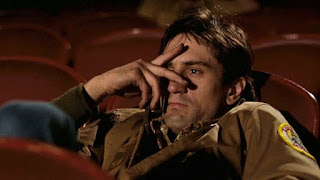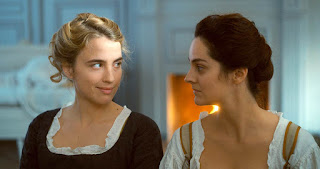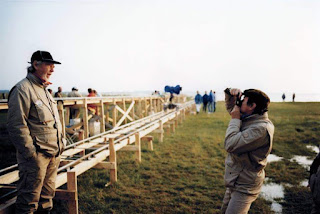10 Greatest Films to win Palme D'or at Cannes Film Festival
Palme D'or is one of the most prestigious prizes in the field of filmmaking and the highest prize awarded at one of the oldest film festivals in the world, the 'Cannes Film Festival'. This was introduced 66 years ago in the year 1955 by the festival's committee. However the festival itself came into existence in 1939 and since then untill 1954, the highest prize awarded was known as 'Grand Prix du Festival International du Film'. Back then Cannes itself was known 'Le Festival International du Film'. From 1940 to 1945 the festival remained abandoned due to the second world war and when it recommenced in 1946 as many as 11 films were awarded this prize. Even in 1947, 5 films were awarded this prize under different categories. The rules weren't rigid and committee was still trying to figure which film should be the rightful winner.In years 1948, 1950, 1968 and 2020 no film was awarded Palme d'or due to various reasons which also includes the cancellation of the festival physically in 2020 due to Covid-19 pandemic. In years 1961, 1966, 1972, 1973, 1979, 1980, 1982, 1993 and in 1997 Palme d'or was shared by atleast two films due to tie situation.
Today this prize probably has more reputation than any of its contemporaries including Golden Lion, Golden Bear and even Oscar's Best Film award. A filmmaker or a film with this award demands a higher respect among their colleagues and cinephile communities all over the world. So far 96 films have been awarded with this prize and as we await for our 97th winner, here's a list of 10 greatest Palme D'or winners according to the writer.
10. Kagemusha (1980) | Akira Kurosawa
Awarded in the year 1980, tied with All that Jazz which itself is a great film in its own right, Kagemusha represents the return of a legendary director to his mileu - historical drama, which deals with many of the themes typical of his body of work, but above all with playing with illusion and reality.
Even if the dimensions of works like Kagemusha or Ran, which Kurosawa shot a few years later, appears large, it is actually a minimalist approach based on Japanese theatre tradition that the director is pursuing. Just as in the theatres, the great emotions are the guiding principles of Kurosawa's staging, and at the same time the downfall for his characters are Shakespearean in their proceedings.
Kagemusha is also a remarkable film because Kurosawa wasn't able to collect funds to finance this film and when George Lucas heard that one of his greatest role models had difficulties getting the financing of a film in his native Japan on its feet, he and his colleague Francis Ford Coppola supported the new project which remains an important film in Kurosawa's later oevure.
9. The Third Man (1949) | Carol Reed
Winner of Grand Prix du Festival International du Film in 1949, Carol Reed's masterpiece continues to haunt us almost 70 years after its theatrical release. A perfectly accomplished description of a Vienna destroyed by the bombings and of its underground world in the literal sense of the term at the end of the Second World War.
The alchemy is such in this production that we do not know where to start: does the magic come from the choice of Austrian actors, Paul Hörbiger, Ernst Deutsch or from the veracity of the plot designed by Graham Greene around a penicillin trafficking led by Harry Lime, this charismatic psychopath derived from Kim Philby, the former spy of the British secret service in which the author of the source material worked. Or is it Orson Welles as Harry emerging from the shadows with a smile on his face in what is perhaps the greatest entry scene in the history of cinema?
8. Dancer in the Dark (2000) | Lars Von Trier
Dancer in the dark won the prestigious Palme D'or at the turn of the millennium. The third and final installment of Lars Von Trier's mesmerising and disturbing 'Golden Heart' trilogy tells the story of Selma who is the epitome of self-sacrifice, altruism and compassion. Von Tier even admitted in an interview that Selma was his take on Virgin Mary. In contrast to this are her neighbors, whose hypocritical facade is actually preserved to the end and, as in real life, (more or less) goes unpunished.
Carried by Bjork's phenomenal performance, this LVT masterpiece on one hand is a grandiose drama about a world that has cooled down in industrialism which does not allow any weaknesses, which exploits and works off people and on the other hand is a wonderful ode to the power of cinema - whenever Selma takes refuge in the world of musicals, in the world of art, the world of cinema, she forgets her suffering, its her escapism from the world which has only exploited her.
Read the list of the 20 greatest female performances of all time.
7. Winter Sleep (2014) | Nuri Bilge Ceylan
Perhaps the greatest filmmaker working today, Nuri Bilge Ceylan won his first and only Palme D'or till date in 2014 for Winter Sleep which arguably is the best film of last decade. Based on a short story by Anton Chekhov, Nuri tells the story of people for whom the division into good and bad never really works, the good have bad qualities, the bad are better than they appear. Hardly anyone here is really personable. A nearly 200-minute long film with little plot and no major story, that is at least a challenge despite the razor-sharp dialogues, and for some it is certainly an imposition.
And yet it is an imposition that is worth facing, which spoils you with wonderful shots of the area, comprehensible characters which are played to perfection and universal insights into human condition.
6. Parasite (2020) | Bong Joon Ho
The last film to win Palme D'or before the pandemic took over is also the one which caused the most sensation worldwide. A film which was initially acclaimed by almost every corner has now started to be looked down upon among some intellectuals who are not too smitten with Parasite's display of class struggle in a bitterly comedic way. Some find the characters of the rich caricaturish while others have problem with morally questionable traits of the poors shown in the film.
But I believe Joon-ho didn't make so easy film for us to simply discredit the rich as cartoon bigwigs or the poors as opportunist leeches. Anyone who has seen the film will realise that how much it removes boundaries as if they never existed. It is a brilliantly written and perfectly staged caustic satirical thriller with powerful metaphors full of social explosive power. Plus what I love the most about it is that it presents humans at their flawed self because no one is saint and no one is total monster in this world and yet it makes no secret of whose side his audience should be on when the going gets tough.
5. The White Ribbon (2009) | Michael Haneke
With almost all his films premiering there and with two eponymous prizes under his belt, Michael Haneke has always been a Cannes favourite.
Through "The White Ribbon” the authoritarian structures of a Protestant village are precisely analyzed and described in a terrifyingly authentic manner by Haneke. With fantastic black and white compositions reminiscent of the strict works of Ingmar Bergman, Haneke gives us an insight into village life before the First World War and into the childhood of the generation that would later support a warmongering pied piper. The constant affirmation of a relentless morality and one-sidedly interpreted Christian values, the strict educational methods and the lack of emotional ties between parents and children, plus the well-worn, seemingly insurmountable power structures of a decaying society - before the eye of the beholder, an unadorned portrait of an encrusted community emerges.
Haneke's films have always been characterized by puritanical rigor, analytical precision and bitter consistency, but in contrast to the director's previous works, “The White Ribbon” is a work of all-encompassing captivating clarity and despite a considerable playing time, long-lasting shots and static images, there is no boredom, because the subliminal tension is enormous and does not let you get distracted.
4. The Cranes are Flying (1958) | Mikhail Kalatozov
The Cranes are Flying took international critics by surprise with its break with the propaganda cinema that Russia used to offer at that time. A love story set against a backdrop of World War II, a diatribe about war, a psychological melodrama about a woman's choices and the consequences of her decision. The film has often been described as a yardstick, of references by film historians.
Technical virtuosity is everywhere. Kalatozov exploits all the possibilities of his camera; if some scenes offers a depth of field and a controlled wide angle, others provide authenticity with hand held camera and in some scenes the camera moves with the actors, sometimes rotates in order to emphasize the adolescent side of the two lovers. Tatyana Somojlova, explodes the screen with her presence. She brings out a vulnerability to her character while maintaining a certain dignity and during the melodramatic finale Kalatozov succeeds in the feat of not falling into the failings of the propaganda film. Thus the film remain a story that shows the horror of all wars through the tragic fate of a woman which is more complex than it appears. In one word this film is a melody.
3. Taste of Cherry (1997) | Abbas Kiarostami
Abbas Kiarostami's controversial masterpiece Taste of Cherry was a joint winner of the highest prize of Cannes Film Festival in 1997 along with Shohei Imamura's The Eel.
Taste of Cherry is an epitome of Kiarostami's whole body of work. As is often the case with his films, the subject is devilishly simple here as well: Mr. Badii planned to kill himself by ingesting sleeping pills after dark. He drives around the outskirts of Tehran in the search of an accomplice, not to execute him, but to bury his remains in the early morning. The Taste of Cherry questions, like Kiarostami's work as a whole, the nature of mutual aid. What can we ask of others? Is there a form of request that we should not make and that we should not be outraged if it is refused?
The recurring presence of the military underscores a bitter irony: it is considered despicable to attempt on one's own life, but worthy of praise to attack the lives of others. Distraught by an unusual request, a righteous desire to stop living, the soldier and the seminarian are lost, worried, attacked by a request that they would have preferred never to be made to them. It is all the more radical as Badii's motives are never explained. Kiarostami questions one's authority on others as well own life by disguising this film as a story about one's right to choose his death.
Read the list of top 5 must watch Abbas Kiarostami films.
02. Paris Texas (1984) | Wim Wenders
Seeing Paris, Texas today is still a shock. Because everyone can see that the film did not age in the first place, that then quite simply, the emotion conveyed by the apparent simplicity of the story remains universal. And the film to be constantly crossed by moments of undeniable grace often aligned one after the other to such an extent that it will inspire many artists while remaining a crowning achievement in the career of its filmmaker.
Sam Shepard and Wim Wenders do wonders and constantly have fun with the established notions and roles of the characters, in order to create a quest for identity. One could write for a long time about the film that one would never completely hide its power of fascination for all these decades. This is perhaps the prerogative of great films and masterpieces, in this ability to escape any shackles and continue to unleash the levels of reading and passion. So we can end by giving the floor to Harry Dean Stanton about the film:
“All this material, this whole situation, is very close to me. I have a son that I have never seen. And Nastassja, I had already worked with her in Coup de cœur , I had been very touched by her, like everyone else, she is magical. Dean Stockwell, of course, I've known him for years. I did not know the little boy, but a child is universal, everyone knows a child… I hope. And I think that's a big theme in Sam's work, the loss of innocence. The word is not the thing, but it is what has disappeared. So it wasn't so much about playing. In truth, everything I feel about innocence, about children, about Nastassja, about a brother… This is my life, all that is the story of my life."
Yeah Harry, the role of your life.
1. Taxi Driver (1976) | Martin Scorsese
Undoubtedly the wildest and boldest film from the dream decade of Hollywood when it was diving deep into experiments and new wave filmmakers were raising the bar high, Taxi Driver is just as strongly located in world cinema as it dissects the problems of its home country.
From today's perspective it seems almost impossible that a film like this was financed by a large studio or even considered for the Oscars. It is too radical, aesthetically and content-wise interested in a socio-political discourse that was particularly topical at the time, but that is actually still relevant. America is of course not put in a flattering light and so the protagonist Travis Bickle is though humanized still remains a symbol for the decline and problems of entire American society.
De Niro dedicates himself humbly to his greatest character. You don't see him, but only Travis Bickle, a disillusioned returnee from Vietnam who, as the dreary image design makes clear from the start, that suffers from unspoken problems. He is one of many who tries to become a functioning part of society and, in his inability, projects his own problems into an overarching conflict. Taxi Driver negotiates his discourse primarily in this area of tension between character drama, social criticism and milieu study, which opens up undreamt-of dimensions in the mutual interaction.
Towards the end, Taxi Driver reveals biting cynicism when Travis' desperate forced march is misunderstood as a rescue mission and his selfish sacrifice as a selfless act. He is a man who may be doing the right thing but acting for the wrong reasons and using the wrong resources to do so. The film thus also portrays the tightrope walk between victim, perpetrator and hero, as well as the dubiousness of media representation.
Any superlative hardly does justice to Taxi Driver because it is perfectly shaped art, blessed with brilliance in terms of content and form, and on so many levels one of the greatest achievements that emerged in the New Hollywood era.
Honorable mentions : The Conversation (1974) by Francis Ford Coppola, Secret and Lies (1996) by Mike Leigh, Shoplifters (2018) by Hirokazu Kore-eda, The Tree of Wooden Clogs (1978) by Ermanno Olmi, All that Jazz (1979) by Bob Fosse.













All fine but for me it is "Taste of Cherry" the number one of the winners in the chart
ReplyDelete